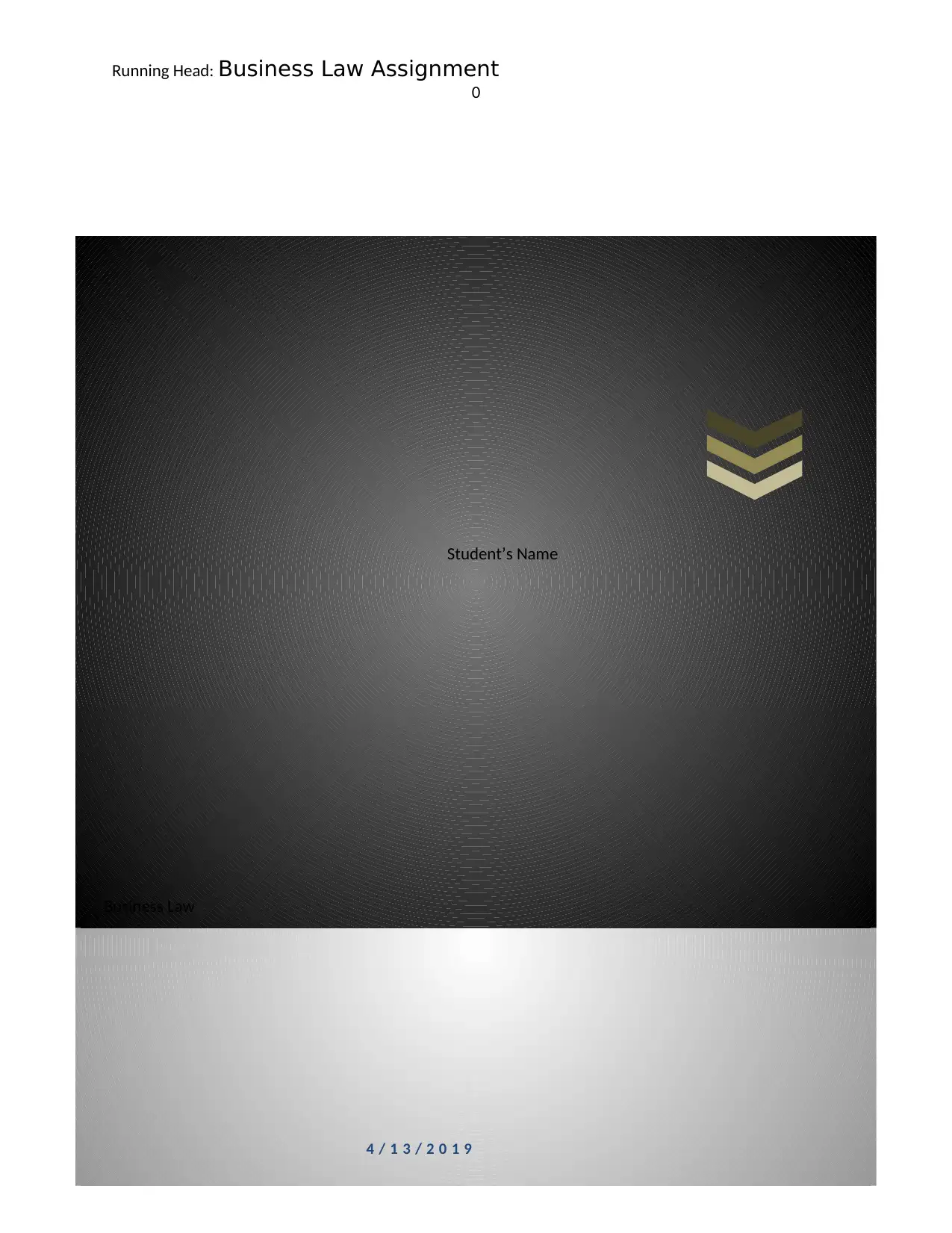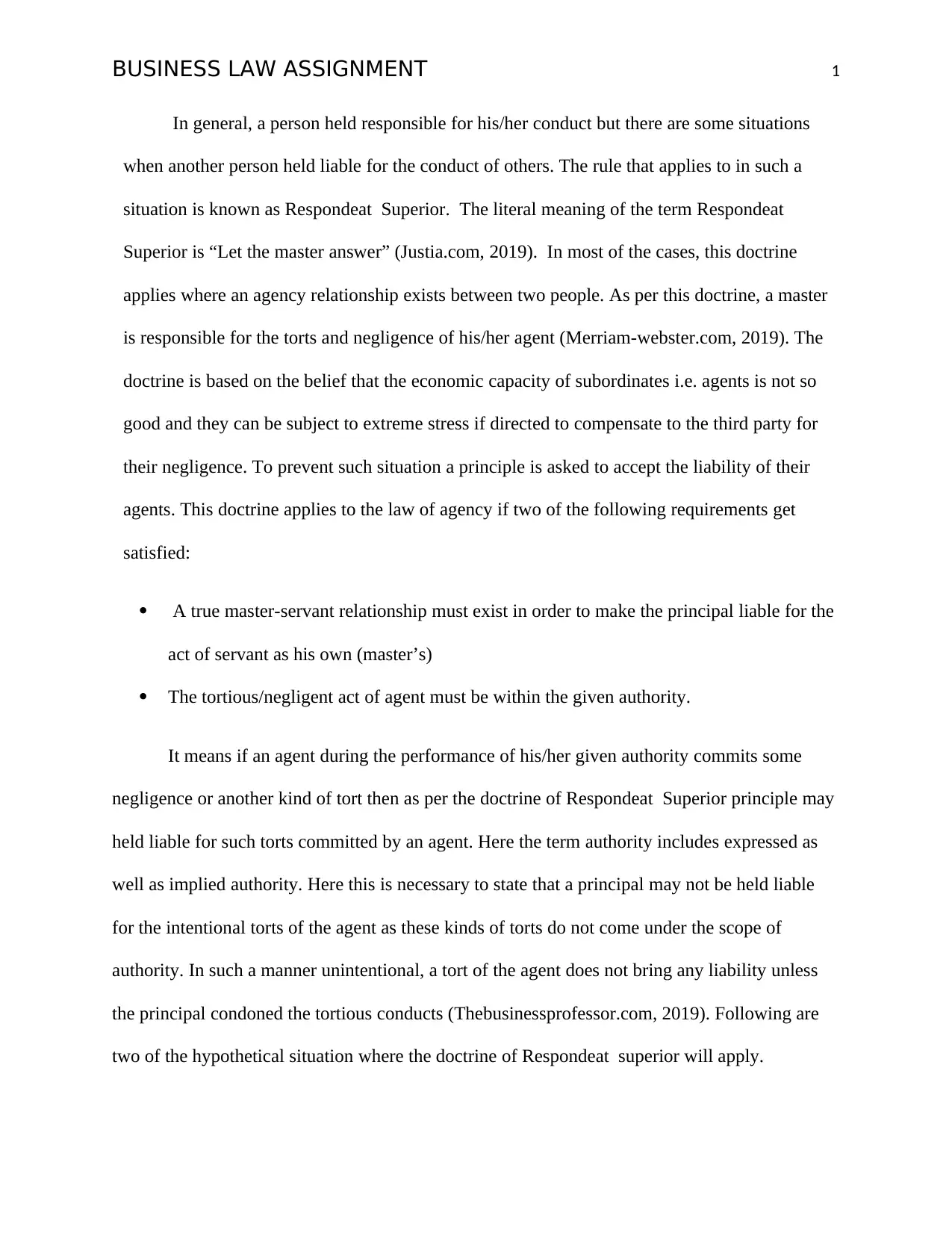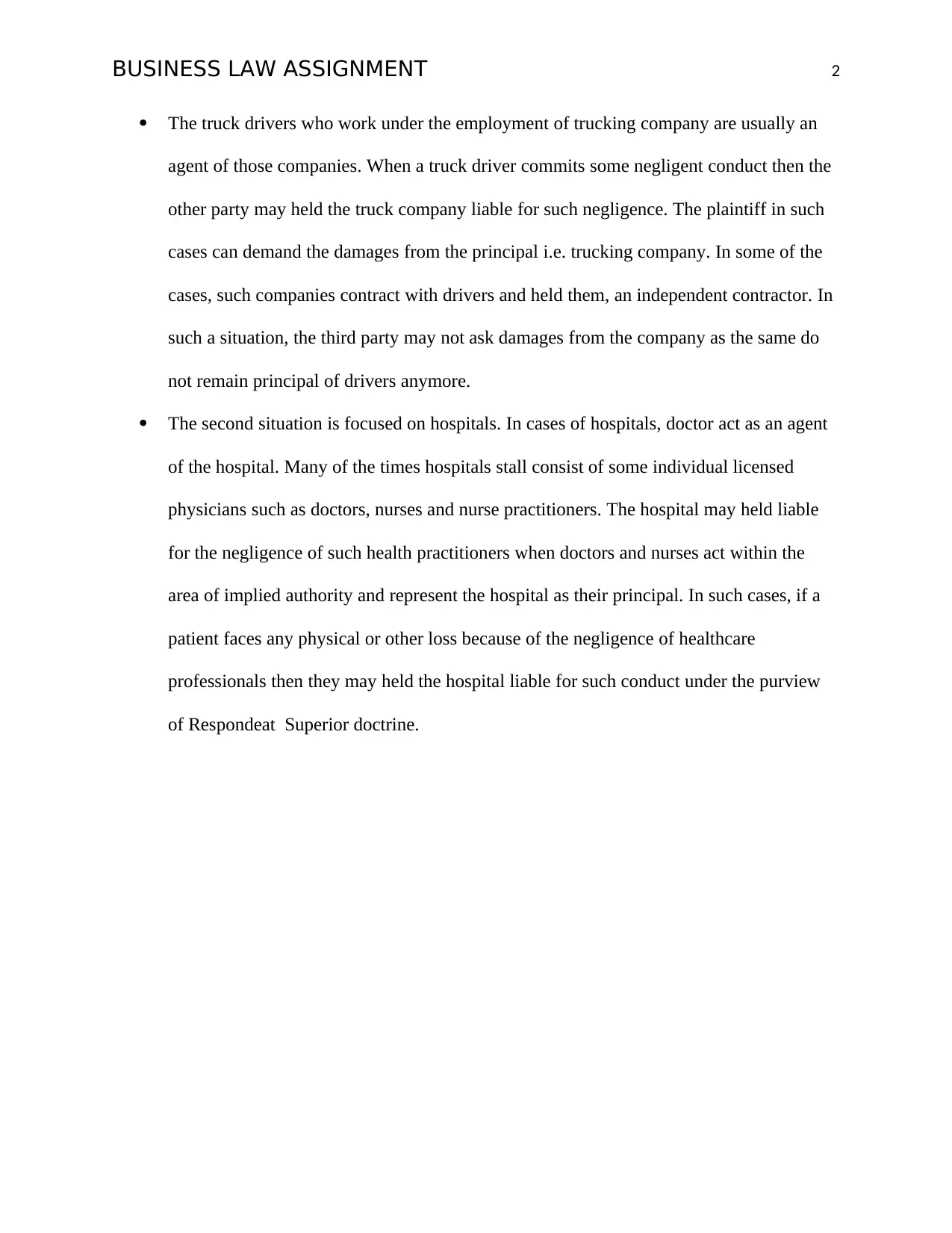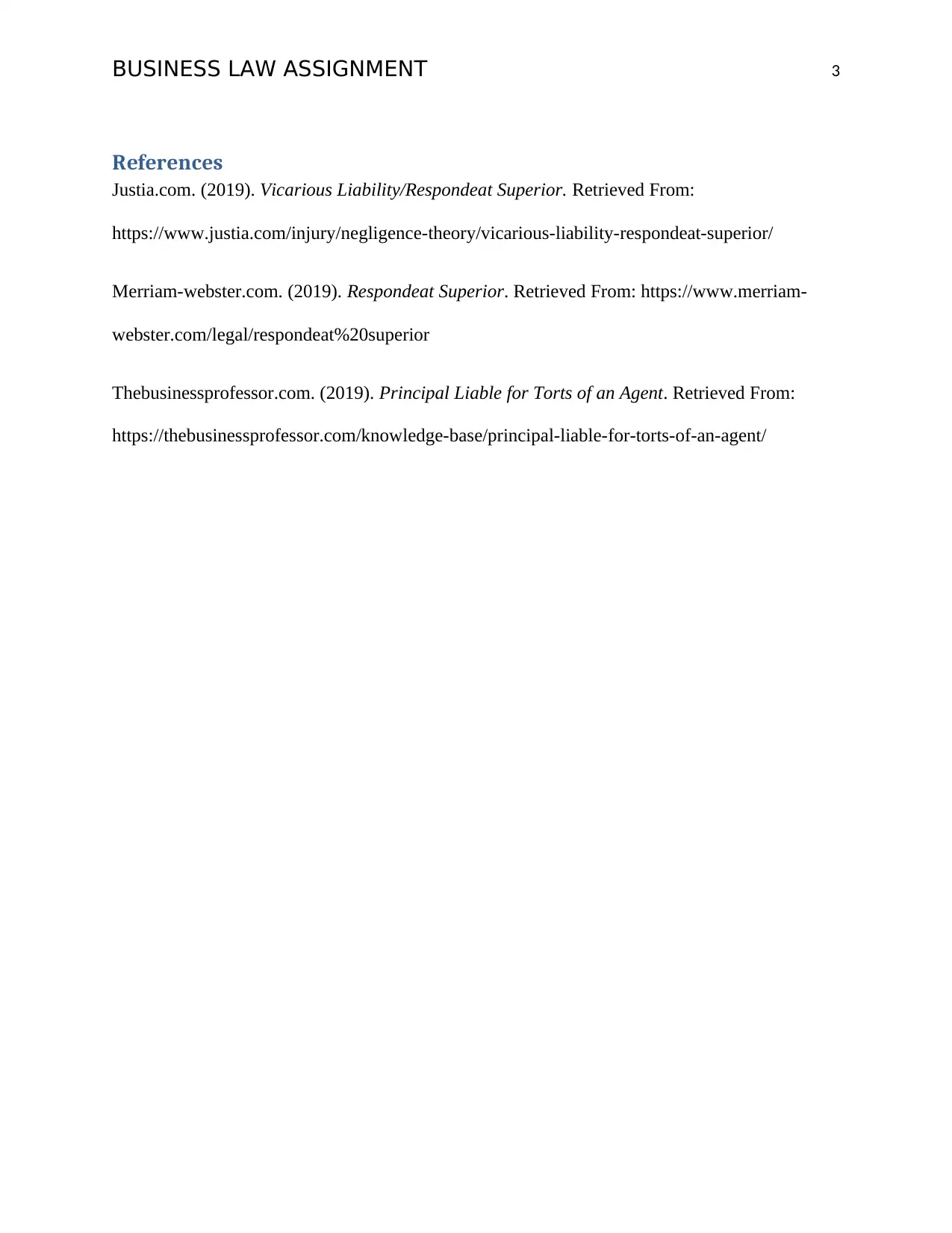Business Law Assignment - Respondeat Superior Doctrine and Examples
VerifiedAdded on 2023/01/19
|4
|645
|95
Homework Assignment
AI Summary
This business law assignment explores the doctrine of Respondeat Superior, which addresses the liability of a principal for the actions of their agent or servant. The assignment begins by defining Respondeat Superior, translating to "Let the master answer," and explaining its application in agency relationships where a master is responsible for the torts and negligence of their agent. It highlights the rationale behind the doctrine, focusing on the economic capacity of agents. The assignment then outlines the two key requirements for the doctrine to apply: a master-servant relationship and the agent's actions falling within their given authority, including both expressed and implied authority, while excluding intentional torts. Finally, the assignment provides two hypothetical scenarios illustrating the application of Respondeat Superior: one involving trucking companies and their drivers, and another involving hospitals and healthcare professionals like doctors and nurses, demonstrating how the principal can be held liable for the negligent acts of their agents within the scope of their authority.
1 out of 4











![[object Object]](/_next/static/media/star-bottom.7253800d.svg)